


In the war against Iran and its allies that it has been waging since October 7, 2023, Israel has established a pattern of wiping out entire slates of enemy leaders.
Last September, Israel shocked Hezbollah and forced it into a humiliating ceasefire by killing its leader Hassan Nasrallah, half its leadership council, and its top military command.
In its opening strikes against Iran in June, Israel swiftly dispatched the Islamic Republic’s multiple top generals and nuclear scientists, among them Revolutionary Guards chief Maj. Gen. Hossein Salami, Armed Forces chief Maj. Gen. Mohammad Bagheri, and missile chief Brig. Gen. Amir Ali Hajizadeh.
Two weeks ago, Israeli planes struck a meeting of the Houthi cabinet in Yemen, killing the Houthi prime minister and other senior ministers.
And in the Gaza Strip, all of Hamas’s senior military and civil leaders have been killed over the course of a 23-month campaign.
Every one of these campaigns is an achievement that few countries could dream of pulling off. Doing it repeatedly, hundreds of miles from Israeli territory, is unheard of.
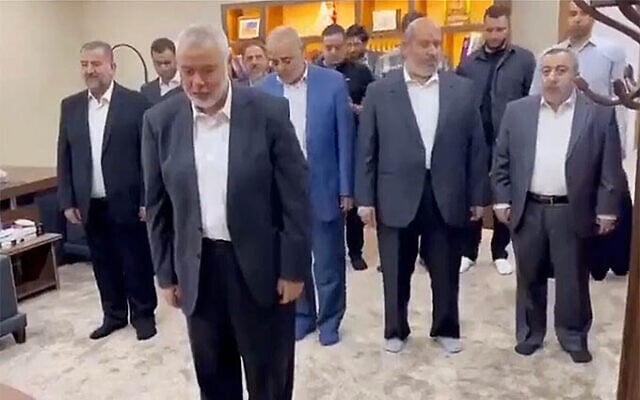
There was one group who seemed immune from Israel’s long arm — the billionaire Hamas political leaders in Doha, the very same gray-bearded men who famously prostrated themselves in a prayer of thanks while Hamas terrorists were still slaughtering Israeli civilians in their homes on October 7, 2023.
Israel struck Hamas political leader Ismail Haniyeh while he was in Tehran, but his colleagues had many reasons to assume that they were untouchable while on Qatari soil. Qatar has used its oil and natural gas wealth to spread its soft power throughout the West. The emirate hosts the largest US military base in the Middle East, and, most importantly, it has served as the key Arab mediator in indirect talks between Israel and Hamas on hostage release deals.
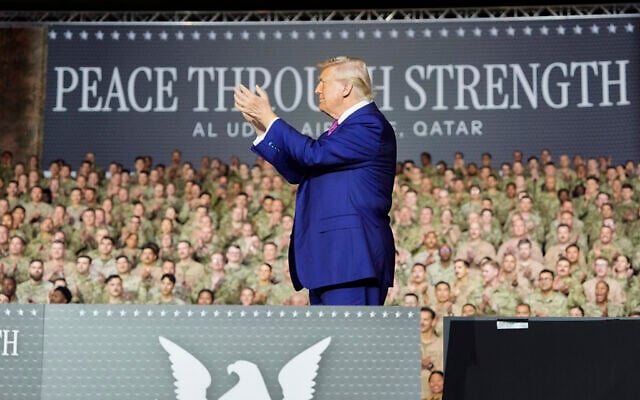
With Hamas refusing to release the hostages on Israel’s terms — and after a deadly terror shooting in Jerusalem on Monday and a deadly attack on an Israeli tank in Gaza the same day — Israel’s patience ran out. On Tuesday, apparently without informing the Trump administration in advance, it targeted a gathering of the key Hamas leaders hosted in Qatar. As of this writing, the results of the strike are not definitively known.
“This is a mega‑event, a historic event,” said Yoel Guzansky, who formerly worked for Israel’s National Security Council and is now a researcher at the Tel Aviv-based Institute for National Security Studies.
An immediate question that arises — beyond the success of the strikes — is the effect it will have on attempts to reach a hostage deal.
US President Donald Trump had presented a new comprehensive proposal to Israel and Hamas. The targeted leaders were reportedly meeting to discuss the outline.
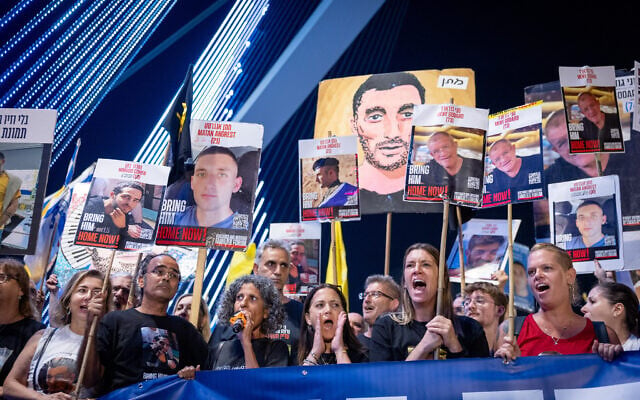
Unnamed Israeli officials were telling Hebrew-language outlets on Tuesday evening that the White House was updated shortly before the attack, but Trump’s press secretary said the White House learned of it from the US military and that Trump went as far as tipping Qatar off. She said the strike inside the territory of a strong US ally “does not advance Israel’s or America’s goals.”
Unless this is part of another US-Israeli deception campaign, Trump is not thrilled about the attack and furious over the location, but it doesn’t appear he is about to punish Israel.
“Eliminating Hamas, who have profited off the misery of those living in Gaza, is a worthy goal,” said the White House, adding that Trump believes “this unfortunate incident could serve as an opportunity for peace.”
The strike could indeed open the way for new Hamas leaders more willing to end the war and release the hostages than the current cohort, though throughout the war, the Hamas military leaders on the ground in Gaza have taken the more fanatical line.

On the other hand, it could put the hostages in further danger if Qatar decides that is the way to exact vengeance on Israel for the blatant breach of its sovereignty.
“I am very deeply concerned about their ability to take revenge on us via the hostages,” said Moran Zaga, expert on the Gulf region at Mitvim – The Israeli Institute for Regional Foreign Policies. “That’s one of their strongest cards through their biggest asset, Hamas.”
“If they want to take painful revenge and they know that’s our soft underbelly, and if they’re capable, they’re that cruel,” she emphasized.
Even if Qatar doesn’t go so far as giving the green light for Hamas to harm hostages, it can hurt Israel in other ways, but none of them militarily. It has economic influence in the West and in Arab countries neighboring Israel, and over time, could push those countries to take measures that damage Israel.
Yet there is a limit to what it can do in the near term. Qatar has no military capabilities to speak of, and shouldn’t expect any help from its neighbors. They were making statements and crying crocodile tears in the immediate aftermath of the attack, which they must do to protect the reconciliation process with Qatar that began in 2021.
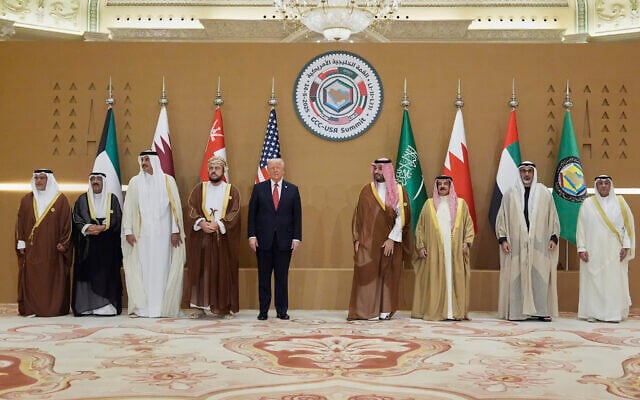
“There’s a real concern this isn’t just rhetoric — that one day it could be directed at them,” said Zaga of Israel’s now repeated capacity to strike at its enemies near and far.
“Israel is becoming a regional hegemon, which, while seen as an asset —military superiority they want to ally with — is also a burden, because we’re starting to pose a real threat to them. This perception exists, it’s sharpening, and they’re very worried.”
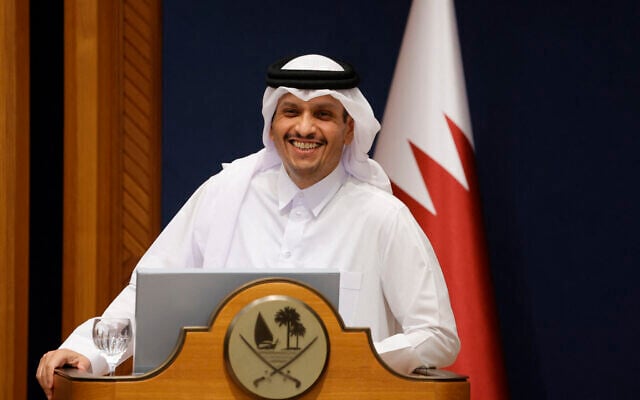
Regardless of how Qatar responds, it has suffered a massive blow. The Qataris have been cementing their position as the indispensable US ally in the Middle East. Doha won over US President Joe Biden and seemed to have charmed Trump as well. In February, answering questions when hosting Netanyahu at the Oval Office, Trump told The Times of Israel that Qatar was doing “a great job” as a mediator and in the larger region.
“One of the failures they’re reviewing is how their Washington lobby failed to prevent this action,” Zaga assessed.
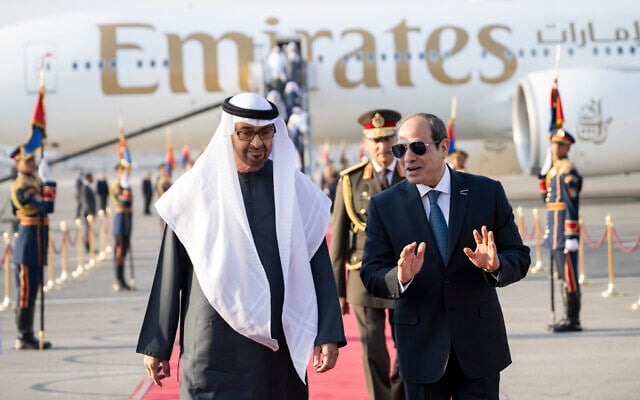
At the very least, Qatar is not about to take part in mediating any contacts between Israel and Hamas for the foreseeable future.
Israel will try to show that it has other options, especially through Egypt. That won’t be especially easy. Cairo has been eager to show that it is the key Western asset in the region, and this is its chance to show that it can leverage its geographical proximity to Gaza and its deep contacts with Hamas military figures to bring an end to a conflict it desperately wants to end.
Israel has been especially critical of Qatari mediation as well, and seems to trust Egyptian intentions more.
On the other hand, with Qatar on the sidelines, Egypt has much more bargaining power with Israel, and ties are strained. Egyptian President Abdel Fattah el-Sisi used to have a productive relationship with Netanyahu, but feels betrayed by him and Strategic Affairs Minister Ron Dermer for publicly blaming Cairo for failing to plug smuggling tunnels into Gaza.
Throughout the war, Egypt has been concerned that Israel will push hundreds of thousands of Gazans into the Sinai, and Israeli ministers’ almost giddy support for the voluntary emigration idea only deepens suspicions.
If Netanyahu wants Egypt’s full cooperation, therefore, he will have to say and do things that will cost him politically.

But were he truly willing to face down Finance Minister Bezalel Smotrich and National Security Minister Itamar Ben Gvir, Netanyahu could see a game-changing opportunity — if, that is, the Doha strikes succeeded.
“It gives Bibi a way to climb down the ladder because it gives him an achievement,” said Guzansky. “It gives him a victory image; it gives him a lot, and he’ll be able to say, here, we delivered: We eliminated Hamas.”
For now, the next steps hinge on the outcome of the attack. But if Hamas’s remaining leadership was wiped out, new opportunities would open up for Netanyahu and Trump.
The White House stressed on Tuesday evening that Trump wants all the hostages returned and for the war to end “now.” Netanyahu, a little earlier, said the strike in Doha could open the door for an end to the war, a better future for Gaza, and a revival of regional normalization efforts.

